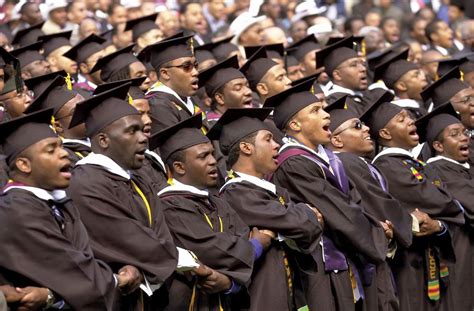Georgia is home to a rich legacy of Historically Black Colleges and Universities (HBCUs), which have played a pivotal role in shaping the lives of generations of African Americans. These institutions provide students with a unique and transformative educational experience, fostering academic excellence, cultural pride, and a commitment to social justice.

A Historical Legacy of Empowerment
Established in the post-Civil War era, HBCUs emerged as institutions dedicated to providing educational opportunities for African Americans who were denied access to predominantly white institutions. Over the decades, these colleges and universities became beacons of knowledge and empowerment, nurturing talented individuals who would go on to make profound contributions to society.
Today, Georgia’s HBCUs continue to build upon their historic legacy, offering students from all backgrounds a high-quality education and preparing them to succeed in the global economy.
Institutions of Excellence
Georgia’s HBCUs are renowned for their academic rigor and commitment to student success. According to the National Center for Education Statistics (NCES), the graduation rate for African American students at HBCUs is consistently higher than the national average.
- Albany State University: Founded in 1903, Albany State is a comprehensive university with over 5,000 students. It offers a wide range of academic programs, including business, education, and nursing.
- Clark Atlanta University: Established in 1865, Clark Atlanta is a private, research-intensive institution located in the heart of Atlanta. It boasts a distinguished faculty and a commitment to interdisciplinary research.
- Fort Valley State University: Founded in 1895, Fort Valley State is a land-grant university with a focus on agriculture and technology. It is renowned for its innovative programs and its dedication to community engagement.
- Georgia State University Perimeter College: Established in 1974, Perimeter College is a public college system with nine campuses located throughout the Atlanta metropolitan area. It offers a variety of academic programs, including associate degrees and four-year bachelor’s degrees.
- Morehouse College: Founded in 1867, Morehouse is a private, all-male liberal arts college located in Atlanta. It is consistently ranked among the top HBCUs in the nation and has produced a distinguished alumni network.
- Morris Brown College: Established in 1881, Morris Brown College is a private HBCU located in Atlanta. It offers undergraduate and graduate degree programs in a variety of fields, including business, education, and the arts.
- Paine College: Founded in 1882, Paine College is a private HBCU located in Augusta. It offers a range of academic programs, включая liberal arts, business, and education.
- Savannah State University: Founded in 1890, Savannah State is a public university with a focus on science, technology, and the arts. It offers over 50 undergraduate and graduate degree programs.
- Spelman College: Founded in 1881, Spelman is a private, all-female liberal arts college located in Atlanta. It is consistently ranked among the top HBCUs in the nation and has produced a notable alumni network.
Cultural Pride and Social Responsibility
Beyond their academic excellence, Georgia’s HBCUs play a vital role in fostering cultural pride and a sense of community among African Americans. These institutions celebrate African American history and culture, providing students with a space to embrace their heritage and to connect with their peers.
HBCUs also emphasize social responsibility, encouraging students to make a positive impact on their communities and the world. They offer a variety of programs and initiatives that promote civic engagement, volunteerism, and social justice.
Benefits of Attending an HBCU
- High graduation rates: HBCUs have consistently higher graduation rates for African American students than predominantly white institutions.
- Strong faculty-student relationships: HBCUs typically have smaller class sizes and a more personalized learning experience, which allows for close relationships between faculty and students.
- Cultural affirmation: HBCUs provide a supportive environment where students can embrace and celebrate their African American heritage.
- Social responsibility: HBCUs emphasize social responsibility and encourage students to become active citizens and make a positive impact on their communities.
- Diverse student body: HBCUs attract students from all backgrounds and create a diverse and inclusive campus environment.
Famous Alumni of Georgia HBCUs
Georgia’s HBCUs have produced a long list of distinguished alumni who have made significant contributions to society, including:
- Andrew Young (Morehouse College): Civil rights leader and former U.S. Ambassador to the United Nations
- Martin Luther King Jr. (Morehouse College): Civil rights leader and Nobel Peace Prize laureate
- Shirley Chisholm (Spelman College): First African American woman elected to Congress
- Oprah Winfrey (Spelman College): Media mogul, talk show host, and philanthropist
- Samuel L. Jackson (Morehouse College): Actor and producer
- Spike Lee (Morehouse College): Film director and producer
Conclusion
Black colleges and universities in Georgia offer a unique and transformative educational experience that empowers students to succeed academically, embrace their cultural heritage, and make a positive impact on the world. With a rich legacy of excellence and a commitment to social justice, Georgia’s HBCUs continue to be vital institutions for the advancement of African Americans and for the betterment of society as a whole.
